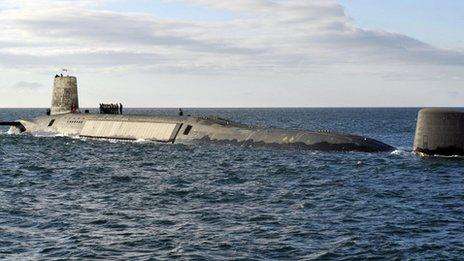Trident 'could be rendered obsolete by hackers'
- Published
- comments
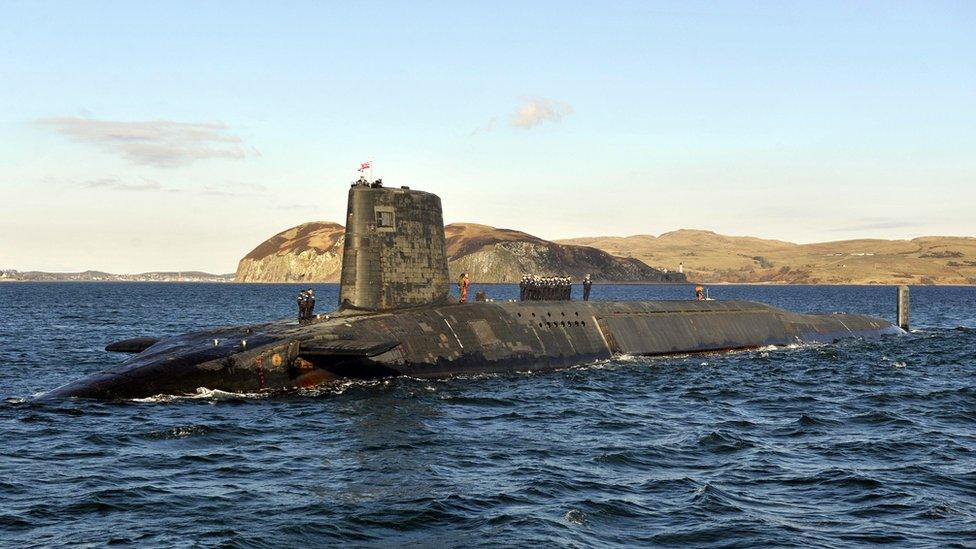
The UK's Trident nuclear weapons system could be rendered obsolete by cyber attacks, former Defence Secretary Lord Browne has warned.
The ex-Labour minister told the BBC unless "weak spots" were protected, there was "no guarantee" of a reliable nuclear deterrent for the PM "when he needs to reach for it".
Ex-Conservative Defence Secretary Sir Malcolm Rifkind played down the risk.
The comments come ahead of a Commons debate on the future of Trident.
Follow the latest political updates with BBC Politics Live
On Monday it was revealed the cost of renewing the system had risen to £31bn.
The government also said the start date for the replacement submarines had been put back until "the early 2030s" as it unveiled its Strategic Defence and Security Review (SDSR).
The review said the UK was a "world leader" in cyber security.
Lord Browne, who was defence secretary between 2006 and 2008, told BBC political editor Laura Kuenssberg that ministers had an "obligation" to assure MPs all parts of the nuclear deterrent had been assessed against the risk of a cyber attack and that protections were in place.
Lord Browne added: "If they are unable to do that then there is no guarantee that we will have a reliable deterrent or the prime minister will be able to use this system when he needs to reach for it."
But Sir Malcolm said: "The whole point of our nuclear weapons is not whether they would work - 100% guarantee - if they were ever required. You think they will do.
"The question is whether an enemy contemplating aggression would be prepared to take the risk."
New cost of replacing Trident nuclear submarines
£31bn
-
In case costs overrun, the government will also set aside £10bn
-
Previous estimates put the cost at up to £25bn
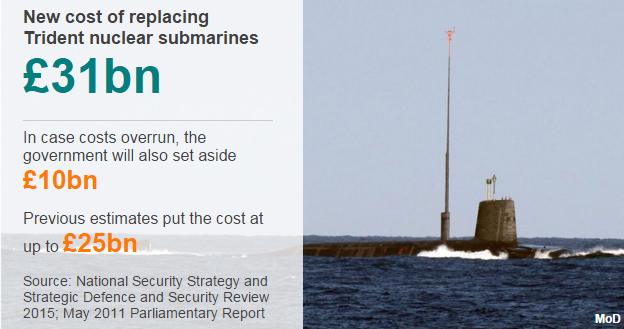
A Ministry of Defence spokesman said: "We wouldn't comment on the detail of our security arrangements for the nuclear deterrent but we can and will safeguard it from any cyber threat.
"We are investing more than ever before on the UK's defensive and offensive cyber capabilities to protect our national interests.
"Last week the Chancellor outlined a plan for £1.9bn in cyber investment, including a £165m Defence and Cyber Innovation Fund, to support innovative procurement across both defence and cyber security."
In the Commons on Monday, Prime Minister David Cameron confirmed MPs would get a non-binding vote on whether to renew the four submarines carrying the UK's nuclear missiles.
Official Labour policy remains to renew Trident, but party leader Jeremy Corbyn is firmly opposed and a review is taking place to consider the party's stance.

Analysis
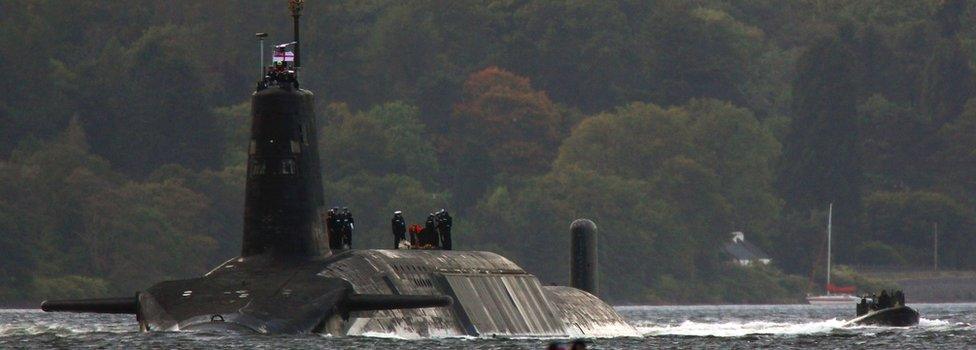
By Laura Kuenssberg, BBC political editor
Lord Browne's comments may be seized on by supporters of Jeremy Corbyn, who are trying to persuade the Labour Party to abandon its support for the deterrent.
The party's leadership is urging its MPs to abstain in a vote later, called by the SNP, that seeks to reject the renewal of Trident.
The vote will not be binding, but Britain's nuclear deterrent is an increasingly expensive, and politically troublesome issue.

Labour MPs are being asked to abstain in the vote - but as many as 20 are thought to be prepared , externalto rebel and vote for Trident to be renewed.
Following a meeting of the party's MPs at Westminster on Monday night, shadow chancellor John McDonnell said the debate was an "SNP stunt".
The SNP has criticised the "ballooning" cost of Trident, saying the Commons vote could be "the last parliamentary chance to stop this utterly awful project".
'National endeavour'
Speaking during the SDSR debate, Angus Robertson, the SNP's Westminster leader, said it was a "super-expensive vanity project" which had failed to deter "against terrorism or cyber attack or conventional attacks on the UK and its allies and friends".
The defence review, external committed the government to a debate on the future of Trident, describing renewing the system as a "national endeavour".
It did not commit the government to a vote on the main renewal decision, however, during the Commons debate, Mr Cameron said he was "keen" to hold a vote "at the appropriate moment".
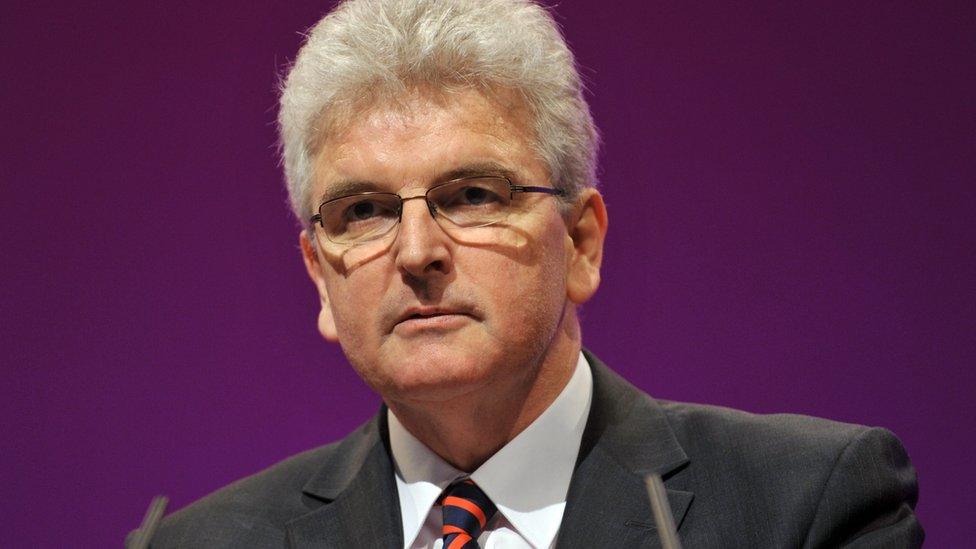
Lord Browne was defence secretary under Tony Blair and Gordon Brown
The review said the revised cost - including a £10bn contingency - and timescale of the project reflected the "greater understanding we now have about the detailed design of the submarines and their manufacture".
It also pledged £1.9bn over the next five years to protect the UK from cyber attacks.
Other measures in the government's £178bn defence spending plans for the next decade included:
Two 5,000-strong "strike brigades" sourced from existing Army numbers and equipped to deploy across the globe
New F-35 jets and maritime patrol aircraft
A reduction in the number of new Type 26 anti-submarine warfare frigates being built, from 13 to eight
More than 20 new Protector drones, more than doubling the number of Reaper aircraft they replace
- Published24 November 2015
- Published23 November 2015
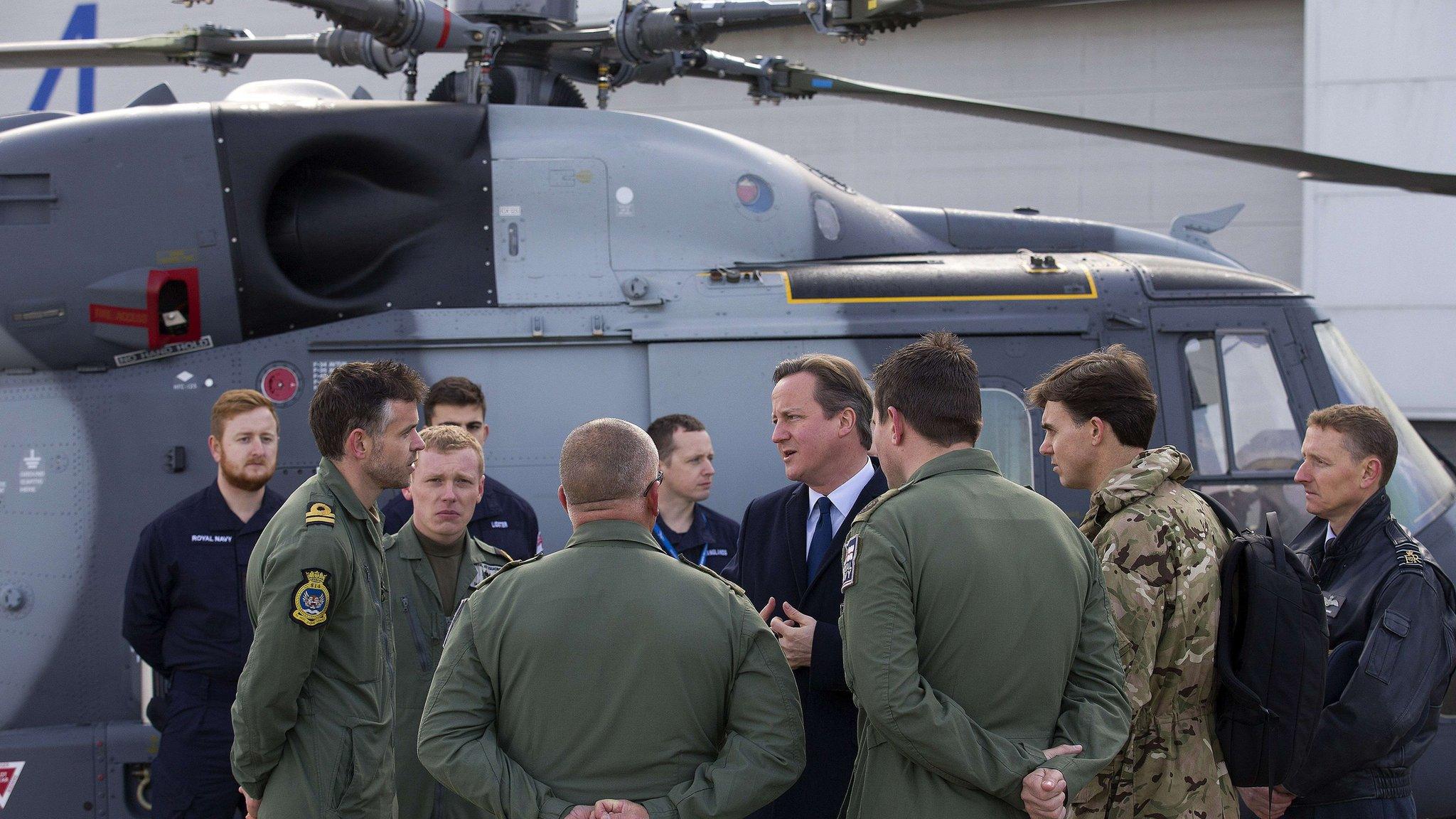
- Published23 November 2015
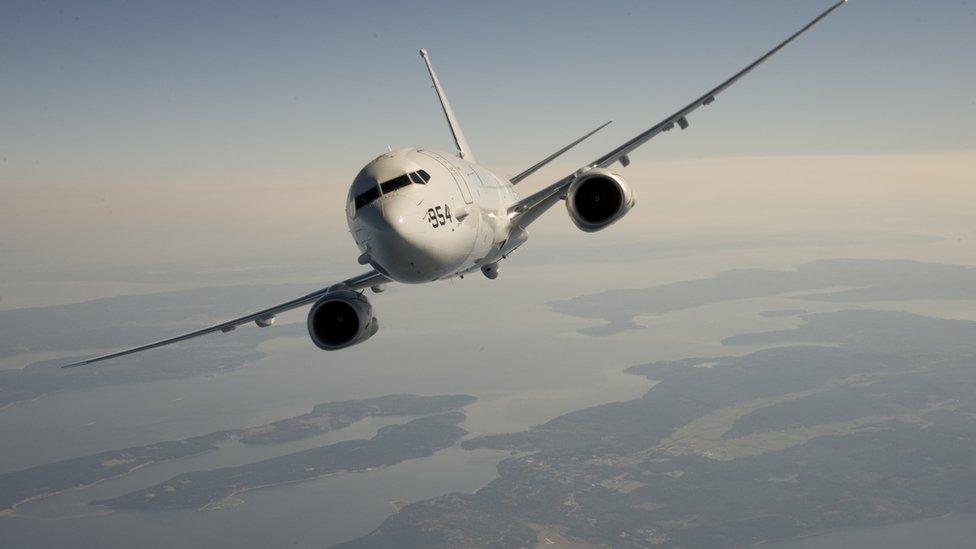
- Published23 November 2015
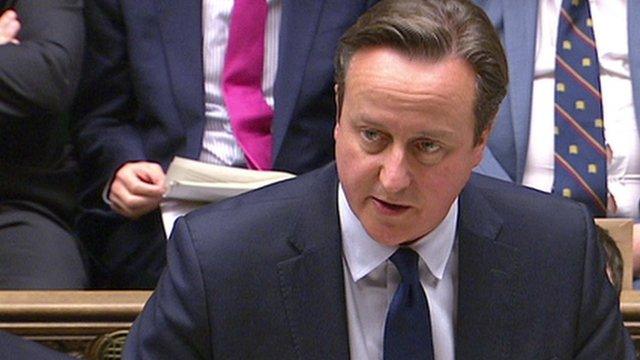
- Published23 May 2017
